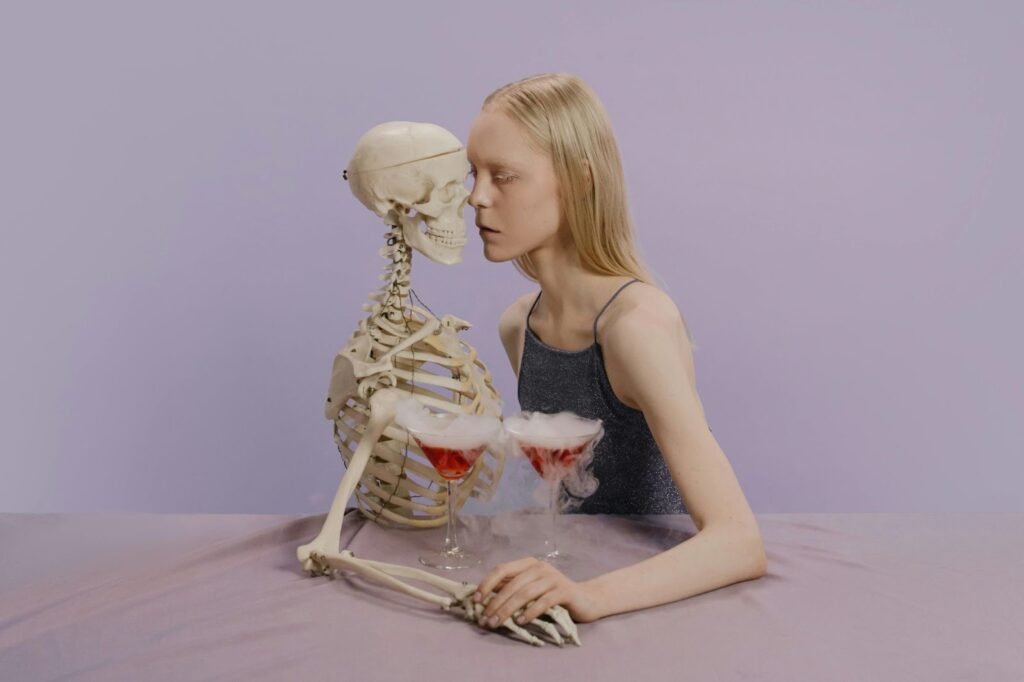The story of the “Lesbian Vampire Killers” is a bizarre and tragic tale that has captivated the public’s imagination for decades. It’s a story of obsession, delusion, and ultimately, murder.
The Duo: Rhian Louise Jones and Helen Mary Wood
At the heart of this disturbing tale are two young women: Rhian Louise Jones and Helen Mary Wood. They were an unlikely pair, united by their shared fascination with the occult and a deep, intense relationship.
Rhian, a troubled young woman with a history of mental health issues, was deeply infatuated with Helen. She saw Helen as a powerful, almost supernatural figure. This obsession, coupled with their shared interest in the occult, led to a series of events that would culminate in tragedy.
The Murders
In 2009, Rhian and Helen embarked on a killing spree that shocked the nation. Their victims were men they met online, lured to their flat under the pretense of a romantic encounter. Once inside, the women would attack their victims, often using knives and other weapons.
The murders were brutal and disturbing, and the police were baffled by the motive. It wasn’t until they delved into the world of the women that a clearer picture began to emerge.
The Occult Connection
Rhian and Helen were deeply involved in the occult. They believed that by killing these men, they were somehow purifying the world and gaining spiritual power. They saw themselves as modern-day vampires, feeding on the life force of their victims.
The women’s fascination with the occult was evident in their online activity. They were members of various online forums and communities dedicated to the dark arts. They shared disturbing images and videos, and engaged in conversations about blood rituals and sacrifice.
The Trial and Conviction
In 2010, Rhian and Helen were arrested and charged with murder. Their trial was a media sensation, with lurid details of their crimes and their bizarre beliefs emerging. The court heard how the women had planned the murders in detail, discussing them in online chats and diaries.
Ultimately, Rhian was found guilty of murder and sentenced to life in prison. Helen, who was deemed unfit to stand trial due to mental health issues, was detained indefinitely.
The Legacy of the Lesbian Vampire Killers
The case of the Lesbian Vampire Killers has left a lasting impact on popular culture. It has been the subject of numerous documentaries, books, and articles. The story continues to fascinate and disturb, raising questions about the nature of evil and the power of the human mind.
A 2009 British comedy horror film:
Written by Stewart Williams and Paul Hupfield, and directed by Phil Claydon.
James Corden and Mathew Horne play the lead roles, while MyAnna Buring, Paul McGann, Silvia Colloca, and Vera Filatova play minor parts.
The film follows two hapless young men who are sent to a remote village to deal with a problem of lesbian vampires.
It’s a comedic take on the vampire genre, filled with humor, action, and campy horror elements.
A pair of real-life murderers:
Rhian Louise Jones and Helen Mary Wood were two young women from Wales who were convicted of murdering three men in 2009.
They were dubbed the “Lesbian Vampire Killers” by the media due to their bizarre behavior and their alleged belief in vampirism.
Their crimes were gruesome and involved stabbing their victims multiple times.
The women were both sentenced to life in prison.
It’s important to distinguish between these two entities, as they are not related, other than sharing a sensationalized name. The film is a work of fiction, while the real-life case is a tragic and disturbing true crime story.

Frequently Asked Questions
Were Rhian and Helen really lesbians?
While they were in a romantic relationship, it’s important to note that their sexual orientation is not the defining factor in their crimes. Their actions were driven by a combination of mental illness, obsession, and a distorted worldview.
What is the psychological explanation for their behavior?
The women’s behavior can be attributed to a combination of factors, including mental illness, obsession, and a distorted worldview. Rhian, in particular, suffered from severe mental health issues, which likely contributed to her delusional thinking.
Regarding the 2009 Comedy Horror Film:
Is the film a parody of vampire films?
Yes, the film is a comedic parody of vampire films, poking fun at the tropes and conventions of the genre.
What is the overall tone of the film?
The film is a lighthearted and humorous take on the horror genre, with a focus on campy humor and over-the-top characters.
Is the film suitable for all audiences?
While the film is rated R for language, sexual content, and horror violence, it is generally considered a fun and silly watch.
Regarding the Real-Life Case:
Were there any specific occult practices involved in the murders?
While the women were interested in the occult, there’s no definitive evidence that they performed specific rituals or practices before or after the murders.
What was the public reaction to the case?
The case generated significant media attention and public fascination. It sparked debates about mental health, the influence of the occult, and the nature of evil.
Have there been any books or documentaries made about the case?
Yes, there have been books and documentaries exploring the details of the case, the psychological profiles of the perpetrators, and the public’s fascination with the story.
What impact did the case have on the public perception of mental illness?
The case highlighted the importance of mental health awareness and the need for adequate treatment and support for those struggling with mental health issues.
Conclusion
The case of the Lesbian Vampire Killers is a chilling reminder of the dangers of unchecked mental illness and the destructive power of obsession. It’s a story that continues to fascinate and disturb, and it serves as a cautionary tale about the importance of seeking help for mental health issues.
To read more, click here.